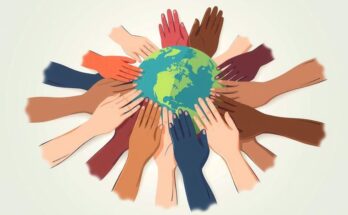A New Era of Governance
Following months of escalating protests, an interim government led by Nobel laureate Mohammed Yunus emerged in Bangladesh after Prime Minister Sheikh Hasina’s ousting in August. Her regime, marked by increasing authoritarianism and violent crackdowns on dissent, was toppled amid public demands for accountability and reform.
Protests and Violent Suppression
Protests earlier in July ignited violence when government supporters attacked students rallying against a manipulated quota system for jobs. Security forces responded with heavy-handed tactics, using tear gas and live ammunition, leading to widespread unrest and Hasina’s subsequent departure from the country.
Actions for Accountability
The Yunus administration swiftly called for accountability by releasing thousands of detained protestors and inviting the UN for an investigation into human rights abuses. Additionally, the government initiated a commission to probe enforced disappearances, signaling a turning point in the country’s human rights landscape.
Reforming Key Institutions
In a bid to foster democracy, the interim government established commissions to reform the judiciary, electoral processes, and public administration. These initiatives aim to lay the groundwork for free elections in Bangladesh, a crucial step in restoring public trust and political stability.
Utilizing the International Crimes Tribunal
The government will utilize the International Crimes Tribunal to address human rights violations during the uprising, despite concerns over its adherence to fair trial standards and the use of the death penalty. This court’s historical shortcomings raise questions about its efficacy in promoting justice.
Abuses Persist
Despite the regime change, reports of abuse by security forces continued post-August. Arbitrary arrests of opposition figures and journalists mirrored past practices under Hasina, suggesting a troubling continuity in state violence and suppression of free speech.
Ethnic and Religious Minorities Under Attack
Following Hasina’s resignation, violence erupted against Hindus, Ahmadi Muslims, and other minorities, claiming over 200 lives. The rise in sectarian attacks post-protests highlights the fragility of communal harmony, with some Muslims stepping up to protect vulnerable minorities from violent mobs.
Torture and Enforced Disappearances
The interim government faces scrutiny over past enforced disappearances under Hasina’s regime. Victims have reported torture during these detentions, and while a few have been released, many remain missing, casting a dark shadow over the new administration’s commitments to human rights.
Socio-Economic Challenges
While economic growth persists in Bangladesh, disparity in resource distribution has led to unrest among the youth, particularly affecting young women, who face the highest unemployment rates. Cost of living inflation adds to the economic strain, particularly for lower-income families.
Freedom of Expression Under Siege
Despite pledges to protect free speech, the interim government has seen an uptick in cases against journalists and activists. Carrying over the restrictions from the previous administration, freedom of expression remains precarious amid ongoing government surveillance and censorship.
Women’s Rights: A Pitiful Reflection
Despite their essential role in the protests, women are still underrepresented in government. With increasing rates of child marriage and inadequate protection against gender-based violence, systemic changes are urgently needed to support women and girls in Bangladesh.
The Rohingya Crisis Continues
With nearly a million Rohingya refugees in Bangladesh, Yunus has called for accountability for abuses against them in Myanmar. However, Bangladesh faces challenges managing this population amid a climate of violence and instability, which exacerbates humanitarian issues in refugee camps.
Sexual Orientation and Labor Rights Issues
Discrimination against LGBTQ+ individuals remains prevalent, with criminalization of same-sex relationships fueling fear among sexual minorities. Labor exploitation persists as garment workers clash with authorities over unfair wages, highlighting the need for reforms to protect labor rights and safety standards.
– Mohammed Yunus leads an interim government after PM Hasina’s ousting. – Protests in July involved violent suppression by security forces. – Yunus invites UN probe into human rights abuses, pledges reforms. – Thousands of detainees released, yet abuses continue amidst public demonstrations. – Challenges remain for ethnic minorities, women’s rights, and Rohingya refugees.
The recent political upheaval in Bangladesh has unveiled entrenched issues regarding human rights and governance. While the interim government under Yunus offers a glimmer of hope for reform and accountability, old patterns of abuse and repression linger, particularly towards minorities, journalists, and laborers. The path to genuine change will require not only new policies but also a cultural shift towards respecting human rights across all sectors of society.
Original Source: www.hrw.org



